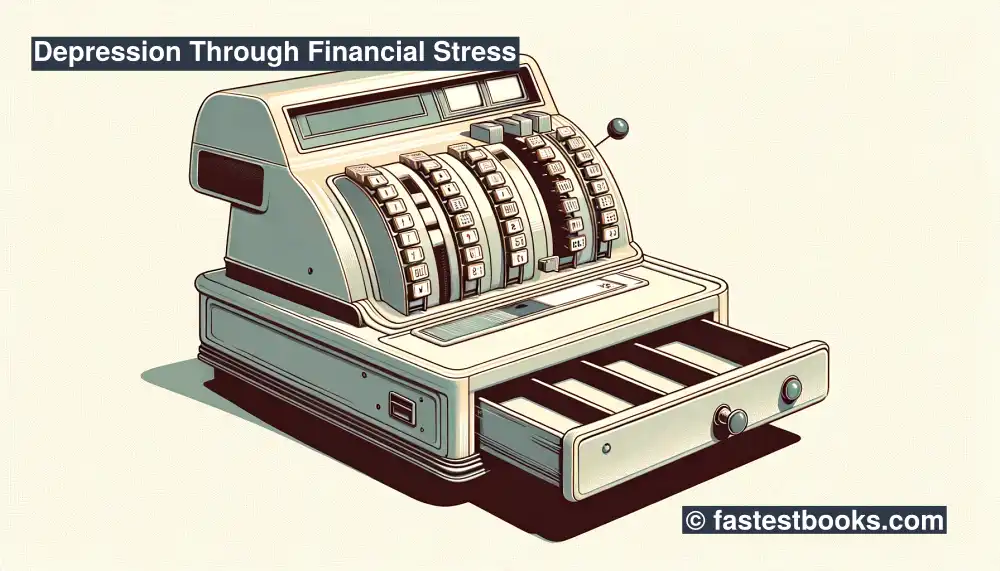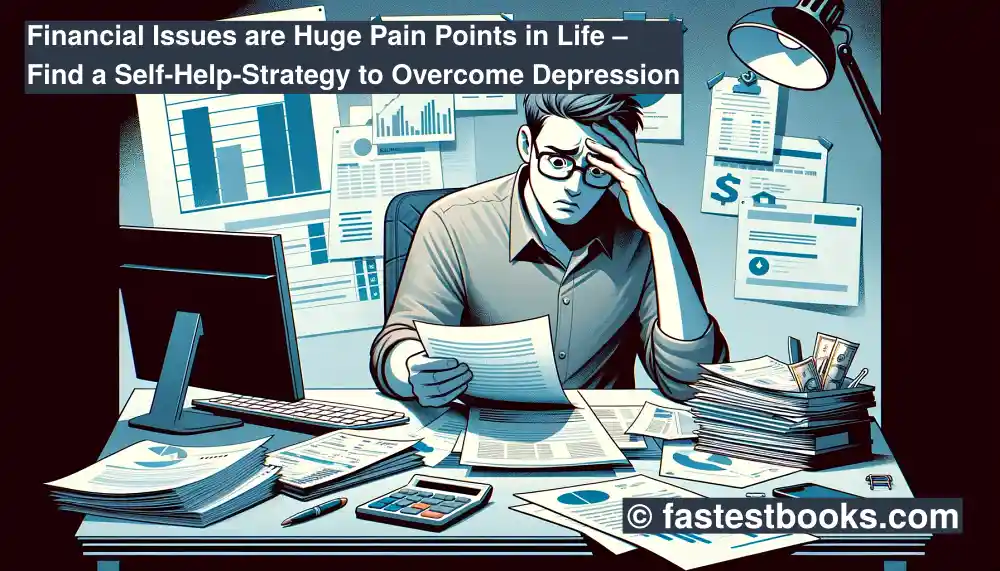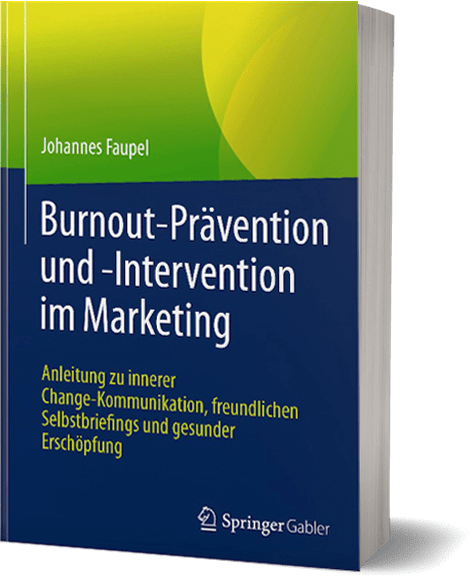Financial Stress and Depression – How to Overcome
Overcoming Financial Stress Depression: Strategies for Mental and Financial Health
It is not unusual to feel overwhelmed by financial matters such as unpaid bills and increasing debt, with associated feelings of anxiety or even depression due to the pressure. This blog examines how these two are connected, providing strategies for managing them both along with insights into public health’s role in ameliorating financial stress symptoms.
- Key Takeaways
- Unpacking the Link Between Financial Stress and Depression
- Defining Financial Stress and Its Mental Health Impact
- Economic Factors and Mental Well-being
- The Vicious Cycle: Poor Financial Health Leading to Poor Mental Health
- Navigating Your Financial and Emotional Well-being
- Strategies to Manage Money and Reduce Stress
- Building a Support System for Emotional and Financial Help
- Prioritizing Self-Care Amidst Financial Hardship
- How to find self-help and coping both in financial and emotional issues
- Tailored Interventions for Mental Illness and Financial Strain
- Identifying Personal Unsecured Debt as a Stressor
- Accessing Resources for Mental and Financial Recovery
- Strategies to find inner peace even in a stressful environment
- Establishing Financial Goals to Leave Depression
- Creating a Roadmap to Financial Stability
- Long-term Planning for Economic and Emotional Resilience
- The Role of Public Health in Addressing Financial Stress and Depression
- Understanding the Broader Social Impact of financial stress
- Advocating for Interdisciplinary Approaches
- The Science Behind Financial Stress and Mental Health
- Exploring the Causal Relationship Through Systematic Review
- Insights from Longitudinal Data on Financial Stress and Depression
- Summary
- Frequently Asked Questions
- How do you overcome financial depression?
- How to not stress about money?
- How to deal with financial stress?
- What resources are available for financial recovery and mental health support?
- What is the role of public health in addressing financial stress and depression?
Key Takeaways
- Unlock the link between financial stress and depression to break the cycle of poor mental health.
- Utilize strategies like budgeting, setting goals, tracking spending habits & building a support system for emotional help.
- Prioritize self care during hardship & access resources to manage both finances and emotions for recovery.
Unpacking the Link Between Financial Stress and Depression

Financial Stress and the Impact on Mental Health and Depression
Mental health and money worries are strongly connected, which can create an ongoing challenge to break out of. Any worsening financial concerns may have a detrimental impact on mental wellbeing – often having far-reaching effects in every area of life. It is important to be aware of the relationship between economic strain and depression. With estimates that approximately 15%-18% will experience this disorder at some point over their lifetime.
Money issues might come up as difficulties meeting bills or managing personal loans without collateral, all of these matters influencing emotional health for sure. This is well known by the World Health Organization since they recognize major depressive illness as widespread amongst people around the world – it impacts more than 264 million individuals worldwide annually according to them too. Its vital strategies aimed at resolving financial stress are applied correctly so that monetary hardships don’t bring about Suffering from poor psychological wellness.
Defining Financial Stress and Its Mental Health Impact
Financial strain is a common cause of worry for many people today, having significant consequences on mental and physical wellbeing, connections with others and life satisfaction in general. Just the prospect of monetary tension can already be defeating, while those who are experiencing economic hardship have greater chances of being depressed than not.
The emotional health impacts caused by financial stress may be severe. Research has demonstrated that there is an increase risk for depression symptoms, anxiety, and certain types of psychoses when someone’s finances become problematic. Some might also use self-harming activities such as using drugs or gambling to try escape their money concerns which worsen their psychological troubles even further.
Realizing how personal finance difficulties affect one’s emotion state helps break this cycle enabling them to regain command over it again.
Economic Factors and Mental Well-being
Economic factors are linked to mental well-being and overall happiness. Low income, lacking money in savings, and not having a home all add up to more cases of depression amongst US adults. Research has found that the disparity between incomes as well as job security both have substantial impacts on emotional health and contentment levels too.
The stability of someone’s employment is especially influential when it comes to their psychological wellbeing. Studies show there is an association between higher rates of insecurity at work with heightened amounts of physical ailments, nervousness issues, social disturbance states along with depressive episodes too – whereas satisfaction from ones jobs conversely links positively with improved wellness conditions and better life quality accentuating economic elements’ great affect over our mental state.
The Vicious Cycle: Poor Financial Health Leading to Poor Mental Health
It is evident that there exists a continuous cycle between one’s financial and mental state: the worse finances become, the more psychological distress it leads to. Financial issues can cause worry, nervousness, and depression, which affects multiple areas such as relationships and job performance. To break this loop requires taking on both sides of health – financial stability along with emotional wellbeing – equally. Taking actions for finance management like tracking expenses or looking for professional advice might help reduce stress concerning money matters which consequently could alleviate its effect on psyche too. Dealing with these together may be complicated, but finding balance in order to regain control over them is necessary yet possible by seeking support from family/friends etc., self care activities & stress control methods if needed.
Navigating Your Financial and Emotional Well-being

Financial Counseling as Depression Side-Therapy
Taking charge of one’s finances and managing mental health can be a difficult process, but with the right strategies and help it is achievable. To support financial stability as well as emotional wellbeing, steps need to be taken including budgeting responsibly, cultivating relationships for assistance when needed, engaging in self-care activities regularly and accessing available resources to address both economic challenges and psychological issues. This guide will provide individuals facing this struggle with information on how best they can manage their money while looking after their mental health at all times during trying periods.
Strategies to Manage Money and Reduce Stress
Creating a monthly budget can be an extremely effective way to both save money and reduce stress. Making this type of financial plan allows you to keep track of your spending habits while also ensuring that resources are being allocated responsibly by prioritizing necessary expenses. With the sense of control over finances that comes from having and sticking with a budget, one’s mental health should improve as well as their overall financial situation.
Another key part in managing funds successfully is setting up tangible goals related to finance – such as saving set amounts per month, eliminating debt or creating emergency savings accounts – which offer direction for movement forward while providing motivation along the way. All leading to decreased levels of anxiety associated with our bank balance status.
Building a Support System for Emotional and Financial Help
Having a strong support system in times of financial difficulty is vital for obtaining both emotional and economic help. Talking to someone you trust about your money troubles can make them appear more achievable instead of feeling too difficult or intimidating. Speaking with an experienced specialist on fiscal matters may bring very useful guidance as well as assistance when it comes to managing finances properly.
Going. Than just discussing your economic challenges also means having someone who will provide emotional backup during hard moments like these – something that could be obtained by joining social functions, getting involved in supportive communities or spending quality time around close people from the inner circle, which ultimately helps diminish stress level while improving mental health at the same time. Remember, not going through this kind of burden alone is key – reaching out for much needed aid would surely benefit anyone’s situation greatly!
Prioritizing Self-Care Amidst Financial Hardship
It is important to practice self-care when dealing with financial stress and hardship, as it can aid in preserving mental health. Self-compassion, a positive attitude, and resilience are just some of the benefits that come from engaging in activities such as exercise, meditation or hobbies. Looking after your emotional needs through relaxation and mindfulness techniques can be helpful too for managing any feelings of anxiety or depression brought on by money worries.
Taking time out for yourself during difficult economic times also has practical advantages. Prioritizing well-being leads to clearer thought processes which allow you to make smarter decisions about finances rather than those driven purely by emotion, seeking social support being one example here if needed! In short, then. Practicing regular self care will keep our physical/mental balance stable despite challenges presented financially.
How to find self-help and coping both in financial and emotional issues
To manage financial pressures and decrease stress levels, there are many available resources that offer support. Free money management counseling services, budgeting tools found online or from apps, and even mental health organizations like MentalHealth.gov and NAMI can provide much needed assistance in dealing with personal finances as well as improving emotional wellbeing. To professional help sources such as these two examples above mentioned, self-help books on finance literacy topics along with mobile applications aimed at cultivating mindfulness could be beneficial assets for those looking to take charge of their monetary struggles while caring for their overall emotional wellness all by themselves.
Tailored Interventions for Mental Illness and Financial Strain

Financial Problems Can Cause Massive Mental Health Problems
It is possible to tackle mental illness and financial strain through tailored interventions designed for the individual’s particular circumstances. To help you feel in control of your situation, we will outline how to identify personal unsecured debt as a stressor, provide resources for recovery and share strategies that can be used to maintain inner peace despite challenging times.
In this way, such measures equip you with helpful tools so that progress towards better well-being can be made. Firstly, it is important to recognise any form of personal unsecured debt which may contribute to feeling overwhelmed or stressed out financially. There are then various support networks available offering aid when managing both mental health concerns along with economic struggles simultaneously – giving access to professional advice should Assistance become necessary while keeping one’s peace within reach all at once. Lastly, there are certain techniques designed specifically for working on maintaining an optimal level of peace during trying situations surrounding either side of the spectrum: from mind related issues together with financial pressure too. Thus proving effective steps toward embracing change into more manageable parts overall!
Identifying Personal Unsecured Debt as a Stressor
Unsecured debt such as credit card bills, personal loans and medical costs are not supported by any form of collateral. If payments on these debts aren’t met, creditors have no asset to claim repayment from the borrower. The consequence for unfulfilled financial obligations can be severe both emotionally and mentally, leading to anxiety, stress and depression concerning one’s fiscal situation.
Realizing how unmanageable unsecured debt affects an individual’s mental health is key in order to get out of this cycle. People should look into dealing with their current monetary responsibilities first before it causes a deterioration in overall well-being or spirals downwards towards poverty again due to its negative effects on psychological state. Taking charge financially while also taking care mentally allows individuals the opportunity break away from crippling finances which often leads poor wellbeing outcomes over time.
Accessing Resources for Mental and Financial Recovery
Finding the right resources for financial recovery is essential. Organizations such as GFOA, Red Cross and MoneyGeek can provide valuable guidance to help reach economic goals and find peace of mind during difficult times. A variety of mental health services like Wellbeing Trust, National Institute of Mental Health (NIMH), Substance Abuse and Mental Health Services Administration (SAMSHA) or Transformations Network offer support when it comes to reducing stress levels while dealing with substance abuse problems.
Asking for assistance should not be seen as a sign of weakness, but rather as an act that requires strength. Turning to these sorts of organisations offers great potential in regards to achieving financial stability and improving overall wellbeing by providing necessary care.
Strategies to find inner peace even in a stressful environment
When faced with financial stress, some effective strategies that can help to regain control and find inner peace include practicing mindfulness techniques, seeking professional assistance, and focusing on what can be managed or changed. Pursuing extra income streams such as side jobs where possible and ensuring priority bills are paid. Mindfulness-based interventions have been proved particularly beneficial in reducing anxiety during times of difficulty. Physical activities like jogging, swimming, cycling or walking may reduce both depression levels and provide an additional uplift for overall mental health too, making exercise a key part of any strategy designed to promote stability amidst tough economic climates.
Establishing Financial Goals to Leave Depression

Peace of Mind through Having Money
Creating financial objectives can be a powerful tool to overcome depression and improve mental health. Devising an action plan that takes you closer to your economic goals is essential as it brings about a sense of control, satisfaction and accomplishment over finances – which contribute in alleviating symptoms associated with money-induced anxiety or distress.
In the following paragraphs we will explore ways on how best you could put together a strategy for fiscal stability. Exploring the importance of long term planning not only from an economical but also emotional standpoint too. By organizing achievable monetary targets and working towards them accordingly, one’s overall wellbeing strengthens while simultaneously helping reduce any existing depressive episodes related to financial issues they may have been facing previously.
Creating a Roadmap to Financial Stability
Developing a plan to acquire financial security and alleviate stress starts with making a budget. Through monitoring your spending routines and following through on the budget, you can gain greater control of funds which reduces worry as well as helps use resources appropriately. Setting aside savings goals, getting rid of high-interest debt obligations and constructing an emergency fund are critical steps in designing a blueprint for fiscal stability. Having such objectives will offer directionality while decreasing economic unpredictability and reducing levels of pressure too. In order to stay on track towards fulfilling these money targets over time, it is key that one routinely inspects their strategy by adapting according to changes occurring within one’s monetary situation along with analyzing overall progress made thus far – this allows maintenance regarding finances whilst managing tension and preventing depression alike!
Long-term Planning for Economic and Emotional Resilience
Long-term financial planning is incredibly important for both mental and economic stability. By setting clear goals, such as saving for retirement or paying off debt, then regularly evaluating progress and adjusting accordingly, you can proactively take control of your finances while reducing stress levels in the process. Professional guidance may be necessary when working on a long-term plan to make sure objectives are achieved effectively. Self care practices should also form part of the strategy so that emotional resilience can remain intact even during financially challenging times. Financial wellbeing will consequently lead to better general well being through improved mental health overall.
The Role of Public Health in Addressing Financial Stress and Depression
Public health interventions are essential to effectively combat financial stress and depression. Promoting healthy habits among individuals can help identify and reduce the likelihood of suffering from such conditions associated with economic worries. Public health programmes need to consider social variables like overall financial well-being in order to improve both physical and mental wellbeing outcomes.
When it comes down to understanding how we as a society respond best when dealing with problems arising out of monetary distress. Advocating for an interdisciplinary approach is key here so that the effects can be minimised drastically on everyone’s lives from all walks of life. Public is a public good. Health experts have a major role in this regard if we wish our community will become healthier & happier places.
Understanding the Broader Social Impact of financial stress

Limited financial resources can lead to resignation and depression.
Find strategies for abundance. It starts with your self-esteem.
The prevalence of financial stress has significant ramifications on mental health in society, and is linked to elevated levels of anxiety, depression, as well as reduced recovery rates for common psychological issues. The effects are observed in crime statistics and social unrest. People facing economic challenges often resort to theft or fraud while domestic violence can be associated with unemployment and living conditions that lack economic stability. It is imperative we take into consideration the impact such a problem has on public welfare when introducing programs designed around addressing monetary concerns.
Advocating for Interdisciplinary Approaches
Collaboration between professionals in the fields of mental health and finance is key to constructing interventions with a tailored focus on financial stress and depression. Interdisciplinary perspectives can offer an overarching perspective, drawing from various disciplines such as psychology, social work, or finances – thus allowing us to put together successful strategies for prevention, intervention and treatment.
This interdisciplinary approach facilitates our comprehension of how exactly financial worries are linked to depressive symptoms. Eventually enabling the formation of effective methods that grapple both sides – mentally-oriented ones as well as fiscal solutions – when addressing these issues experienced by individuals struggling financially. To maximize potential efficacy, we need collective efforts: bringing experts in multiple areas together will allow us to create more useful plans which could help those affected confront their emotional distressful state alongside making strides towards overcoming economic hardship.
The Science Behind Financial Stress and Mental Health

Financial Stress and Mental Health – The Science Behind
Studies of the causal relationship between financial stress and mental health have shown a strong correlation, resulting in Investigations into this area. Systematic reviews and longitudinal research has revealed that there is indeed an association between financial strain and depression, requiring attention to both psychological issues as well as economic difficulties.
The following sections will cover scientific data about the link between money-related pressures and emotional wellbeing through analyses of systematic evaluations plus information obtained from long-term studies. Aiming to provide more understanding on how we can better address these concerns with effective interventions/strategies tailored for each individual situation.
Exploring the Causal Relationship Through Systematic Review
A systematic review of high-income European countries, the USA, Australia, Japan and South Korea, as well as low- and middle-income countries was conducted to better understand the causal relationship between financial stress and depression. Utilizing specific inclusion/exclusion criteria during their research, they concluded that individuals struggling financially are more than twice as likely to experience major depressive disorder or a less severe form of it. This heightened level of financial worry also heightens levels of anxiety, depressions stresses. Thus making an overall impact on mental health wellbeing worse off. This confirms there is indeed a connection between money worries and psychological distress, emphasising the importance for both issues to be addressed accordingly.
Insights from Longitudinal Data on Financial Stress and Depression
Longitudinal data have been useful in understanding the link between financial difficulties and depression. Research has shown that money troubles can cause greater levels of anxiety, distress, poor mental health outcomes as well as being related to depressive symptoms. There is a positive correlation between fiscal stress and feeling depressed plus it appears to be influential with regard to both physical and psychological wellbeing too. For example, if wages are lost, this may consequently result in elevated levels of reported economic tension, which correlates negatively with youth’s moods. To tackle these issues effectively, targeted strategies should be developed based upon such evidence gathered from longitudinal studies concerning money pressures leading up topoorer emotional states.
Summary
To wrap things up, the connection between economic tension and depression is intricate and varied. If we have a grasp of how these two aspects are intertwined, then tailored interventions can be created to take care of both financial wellbeing as well as mental health. Making sure self-care comes first, setting monetary targets, seeking help from friends/family members or experts along with taking an interdisciplinary method are important steps in tackling money stress and sadness while striving for better fiscal stability later on.
Remember that you don’t need to do this by yourself – there’s help out there when it comes to handling economic difficulties as well as emotional ones. By being proactive in trying to fix your finances together with any psychological issues related to them at hand will let you exit the loop of finance worries & melancholy thus allowing brighter prospects going forward!
Frequently Asked Questions
How do you overcome financial depression?
Talking to a trusted individual for advice, budgeting and planning ahead are just some of the ways that can help manage financial depression. Taking control over your finances is key, creating an actionable plan while reducing overall stress levels will have you well on your way towards achieving this goal.
How to not stress about money?
In order to deal with financial pressure, there are some steps one can take. These include generating extra forms of income, getting a better grip on budgeting and costs by decluttering them in your finances, discussing these matters with another person who knows about money issues, enabling auto payments for monthly bills as well as tracking progress of savings made each month plus focusing on longer-term fiscal objectives. It is also recommended that people try reading materials related to finance, such as books or podcasts, so they have more knowledge at hand when constructing an attainable plan around their monetary goals.
How to deal with financial stress?
Financial stress can be daunting, but it’s possible to keep your peace of mind by taking action. Creating a budget or spending plan and tackling any debt are good first steps, as is automating payments and savings for convenience. Seeking new ways to earn more money should also be an objective along with prioritizing what you have control over in this situation. Saving money for later. Much is feasible during such trying times will make all the difference too! Last but not least – don’t hesitate to speak with lenders if needed and take advice from knowledgeable financial advisors when appropriate.
What resources are available for financial recovery and mental health support?
With the aid of organizations such as GFOA, Red Cross, MoneyGeek and MentalHealth.gov along with support from NAMI.org and local support groups it’s possible to take charge in managing both financial recovery and mental health concerns simultaneously.
What is the role of public health in addressing financial stress and depression?
Public health can be used to combat financial strain and depression, by creating targeted approaches that focus on the social factors influencing people’s well-being. Strategies are being developed to tackle this issue in order to support those struggling with money problems as well as mental health difficulties.
After reading about Depression, now learn something new about obsessive-compulsive disorder (OCD).



